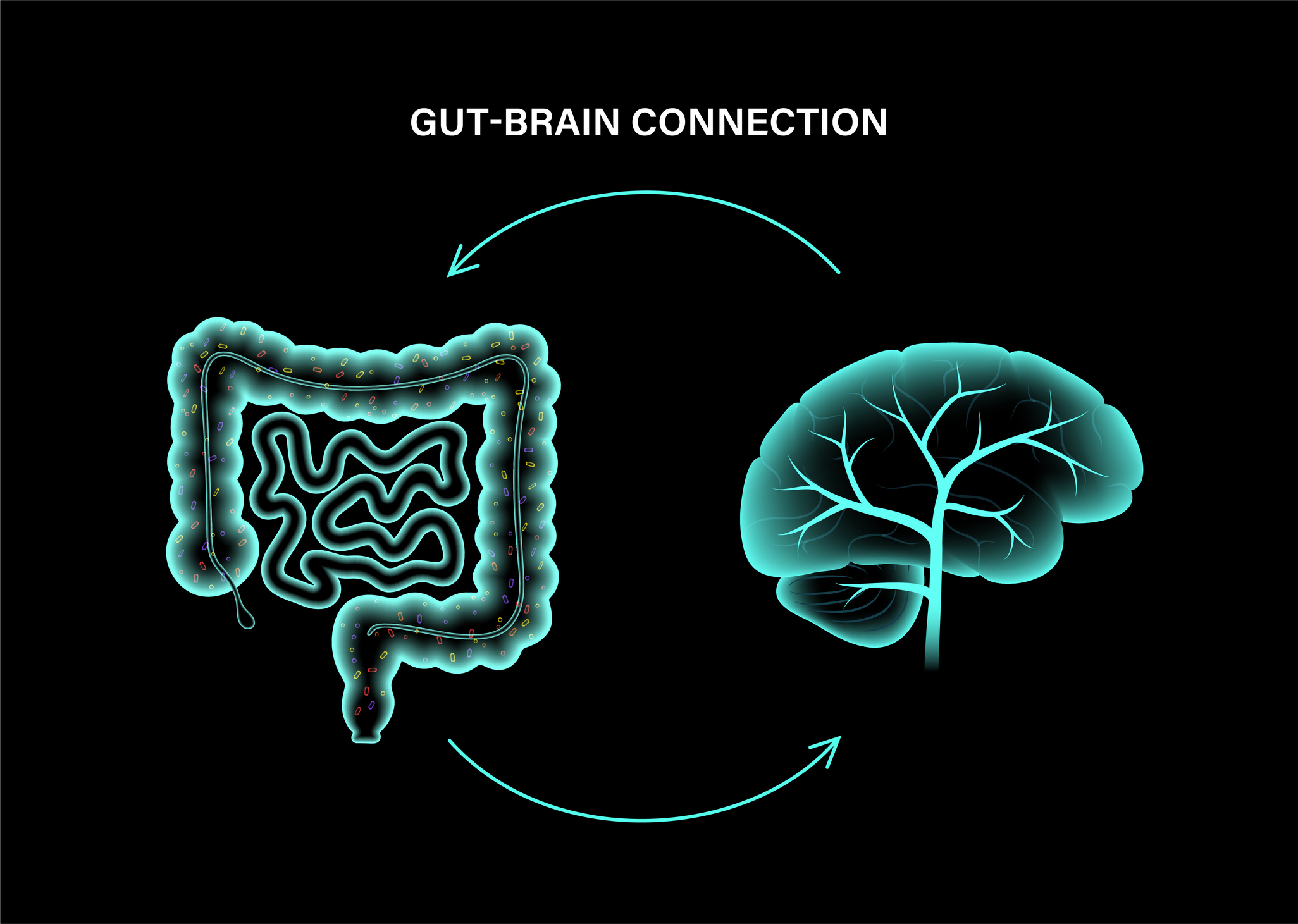Researchers have shown a direct connection between the gut microbiome and intestinal permeability with the brain and nervous system. Hence the terms’ Gut-Brain Axis’ or the Gut-Brain-Microbiota axis.’
Download my new e-book to learn more about hormone balance and creating a healthy gut microbiome. GET YOUR COPY HERE.
There is emerging evidence that disruptions in gut health, such as the leaky gut, have a harmful impact on brain health and function. This Gut-Brain relationship has been most well studied in people with celiac disease and autistic spectrum disorder (ASD). However, all types of cognitive issues can be helped with natural healing gut protocols.
The authors of a published article in the journal Microorganisms discuss the research demonstrating a link between leaky gut and dysbiosis with negative impacts on the brain. The authors state that when the intestinal blood barrier is compromised, it has the potential to affect various organ systems of the body adversely. The brain has a similar design to that of the small intestine in that it has a barrier known as the blood-brain barrier (BBB). The authors note that a leaky gut may be an underlying cause for disruptions in the BBB. The systemic inflammatory response by the immune system to the leaky gut may lead to disruptive effects on the BBB. Some refer to the increased permeability of the BBB as a ‘leaky brain.’ The same authors note that a breakdown in the BBB is observed in patients with major psychiatric illnesses. The neurological conditions associated with a ‘leaky brain’ include autistic spectrum disorder (ASD), dementia, Alzheimer’s disease, depression, schizophrenia, multiple sclerosis, brain trauma, edema, brain cancers, amyotrophic lateral sclerosis (ALS), and meningitis.
The same authors note that a breakdown in the BBB is observed in patients with major psychiatric illnesses. The neurological conditions associated with a ‘leaky brain’ include autistic spectrum disorder (ASD), dementia, Alzheimer’s disease, depression, schizophrenia, multiple sclerosis, brain trauma, edema, brain cancers, amyotrophic lateral sclerosis (ALS), and meningitis.
Interestingly, the authors of an article in Food Science and Human Wellness state that nerves traveling from the brain (vagus nerves) travel and connect with the microbiome! Therefore, the microbiome is directly influenced by brain activity. As a result, stress responses by the brain may cause dysbiosis in the gut. Oppositely, the authors state that an inflamed gut with dysbiosis can influence brain activity by altering neurotransmitter (brain chemical) balance. Several neurotransmitters such as serotonin, acetylcholine, histamine, GABA, and glutamate can be affected by gut health and activity. An unhealthy gut is known to cause the release of the stress hormone in the brain known as ACTH, which causes the adrenal glands to release stress hormones.
References
Deters B, Saleem M. The role of glutamine in supporting gut health and neuropsychiatric factors. Food Science and Human Wellness. 2021;10(2):149-154. doi:10.1016/j.fshw.2021.02.003
Obrenovich MEM. Leaky Gut, Leaky Brain?. Microorganisms. 2018;6(4):107. Published 2018 Oct 18. doi:10.3390/microorganisms6040107
About Dr. Stengler
Dr. Mark Stengler NMD, MS is a bestselling author in private practice in Encinitas, California. His weekly FREE newsletter, Dr. Stengler’s Health Breakthroughs is available at www.americasnaturaldoctor.com

